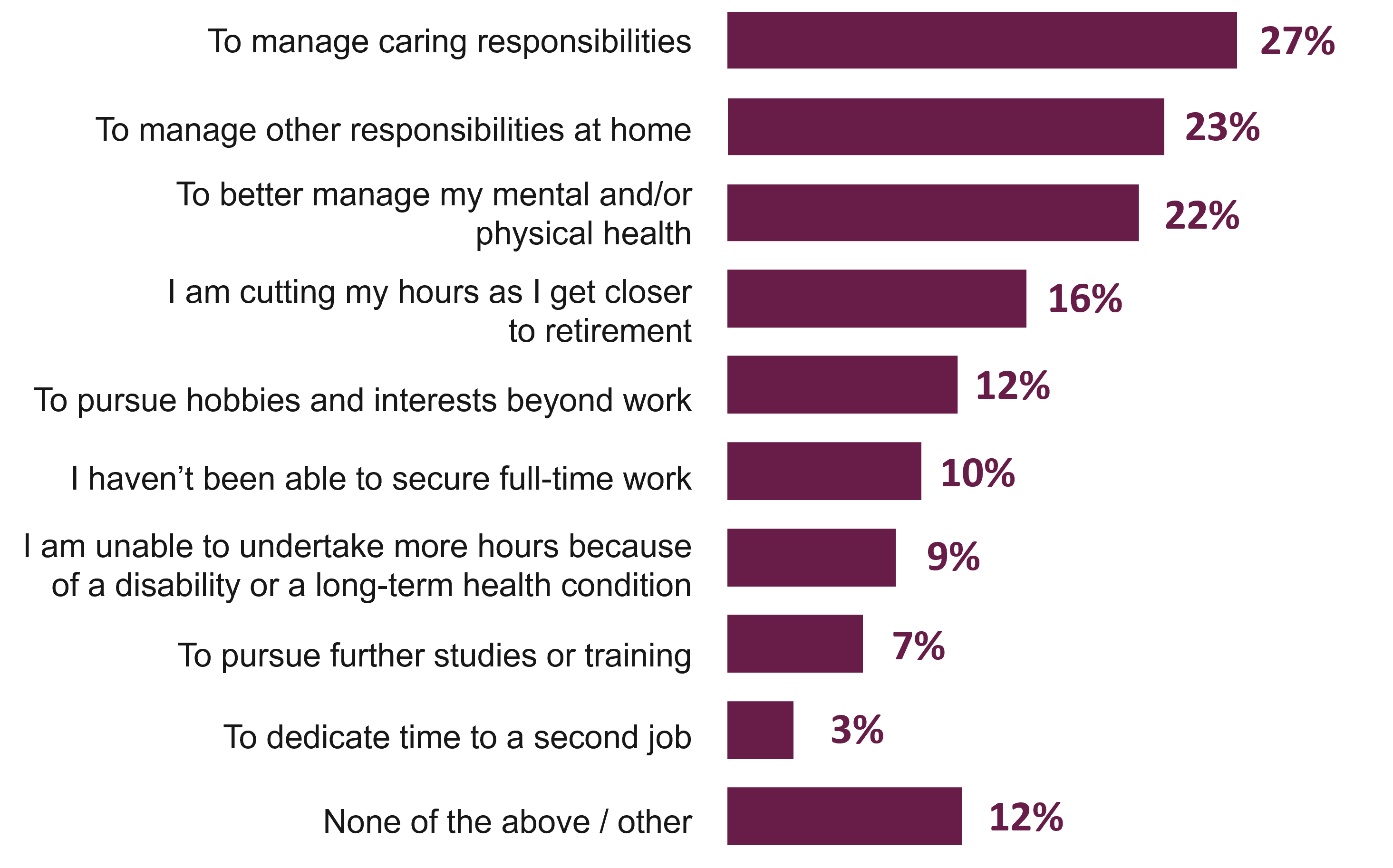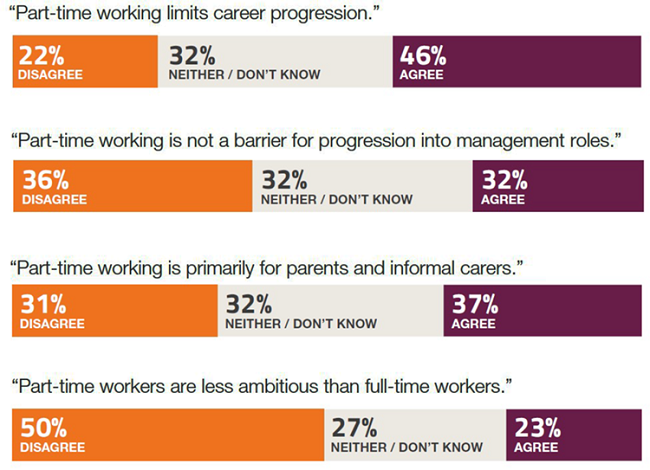

This research has captured the whole picture of part-time working in the UK right now. We’re excited to share these voices. It’s not a simple story.
The aim of A Question of Time is to capture the whole picture of part-time working in the UK, right now. It’s not a simple story.
In partnership with Opinium, we surveyed both full-time and part-time 4,001 workers and undertook focus groups to gain a deeper understanding of people’s experiences of and views on part-time working.
There’s a mixed story of blocked career paths, conflicting views – and a glimpse of hope (see our video).
Reduced hours are seen as a central way to manage life and health needs. But there are distinct cultural and economic barriers to overcome. Part-time work is perceived to limit career progression, particularly among the ‘gatekeepers’ of career success: managers.
Yet, ironically, managers are the most likely occupational group to express an interest in working part-time in the future.
In this report, we shine a spotlight onto people’s experiences and perceptions of part-time working to contribute much needed new insight into labour market inequalities. By gathering a deeper understanding of the realities of part-time work, and differing attitudes towards it, we’re better able to direct action to deliver change, improving the lives of workers by granting them greater flexibility and choice.
Part-time employment is prevalent in the UK, especially among women. However, there has been a slow decrease in women’s participation in part-time work, and a slight increase in men’s.
41% of people work part-time to manage either care or home related responsibilities, and 22% work part-time to better manage their mental and/or physical health. The findings highlight the gender inequalities associated with caring responsibilities, yet also draw attention to the health crisis.

Covid has changed things. People want to pursue interests beyond work. Part-time shouldn’t just be for parents.
YOUNGER WORKER, FOCUS GROUP PARTICIPANT
Nearly half of all survey respondents believe part-time working can limit career progression, and over a third of workers consider it to be primarily for parents and carers, rising to 1 in 4 among those in the managerial occupational group.

Differences in the perception of the status of part-time work by age, ethnicity, education and occupation include:
While half of the survey respondents would be happy to talk to their employer about changing their working arrangements, 30% would not be comfortable discussing reduced hours. Of the respondents, younger workers and those with temporary contracts were least comfortable discussing changing their working arrangements. However, this group were more likely to consider taking advantage of the new day one right to request flexible working in a future role, and significantly more respondents from black minority ethnic groups than white ethnic groups would do the same.
The focus groups supported these findings as well as highlighting that workers were more comfortable discussing working arrangements once more established in their role, with a build up of trust between employer and employee.
At junior level, it’s difficult to discuss flex but as you become more senior and gain trust and respect, it’s easier to pursue it. The ‘right to flex’ is seen as a reward for good work and being trusted. It’s something you earn and isn’t something you automatically have.
OLDER WORKER, FOCUS GROUP PARTICIPANT
Our new findings show there’s a strong demand for part-time working, regardless of gender, occupation and income, and it has a key part to play in tackling societal challenges such as managing health and wellbeing and the increased burden of social care. There is an urgent need for joined up action by employers, policymakers and government to tackle inequalities in the part-time labour market and create more inclusive workplaces where employees can thrive.
So what can employers do today to make a difference?
Timewise is grateful to our corporate supporters for making the project possible: Diageo, Lloyds Banking Group and Phoenix Group.
Published December 2023
Watch the Timewise A Question of Time webinar below: